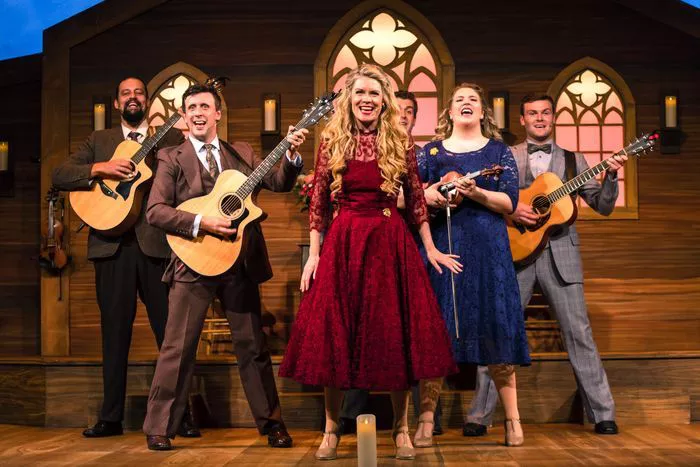Country music, a genre deeply rooted in the American heartland, has long held a special place in the hearts of music enthusiasts worldwide. Its storytelling prowess, emotional depth, and the ability to capture the essence of rural life are just a few reasons for its enduring popularity. However, when you infuse the soul-stirring sounds of gospel into this genre, you create a musical fusion that transcends time and culture. In this article, we will explore the rich history, notable artists, and enduring impact of gospel country music.
The Roots of Gospel Country Music
To fully understand the magic of gospel country music, we must delve into its origins. Both gospel and country music have deep roots in the rural South, making their merger a natural evolution. Country music, with its folk and blues influences, has always been about telling stories, while gospel music, deeply rooted in African-American spirituals and hymns, has a strong foundation in religious expression and emotional fervor.
In the early 20th century, these two musical genres began to intertwine in the Southern United States. Musicians in churches and communities found common ground in their shared love for music, leading to a beautiful fusion. Country music became the canvas upon which gospel lyrics and melodies were painted, creating a genre that spoke to both the human condition and the soul’s desire for spiritual connection.
Pioneers of Gospel Country
One of the early pioneers of gospel country music was the legendary Hank Williams. With his hauntingly sincere vocals and emotionally charged lyrics, Williams laid the foundation for the genre’s crossover success. Songs like “I Saw the Light” and “Thank God” seamlessly blended the storytelling prowess of country music with the fervent devotion of gospel, setting the stage for future generations of artists to follow.
Another trailblazer was Johnny Cash, whose deep, resonant voice became an iconic symbol of the genre. Cash’s timeless hits, such as “I’ll Fly Away” and “The Old Rugged Cross,” showcased his ability to convey the depth of faith and struggle through the lens of country music. These artists, among others, helped popularize gospel country music, ensuring that the keyword “country music” would be forever associated with this unique blend of sounds.
The Golden Era of Gospel Country
The mid-20th century marked the golden era of gospel country music, as the genre gained widespread recognition and appreciation. Artists like Patsy Cline, with her angelic voice, recorded gospel-inspired songs like “Just a Closer Walk with Thee” that resonated with audiences of all backgrounds.
During this era, the genre’s themes expanded beyond faith to encompass themes of love, loss, and redemption. The keyword “country music” was firmly etched into the hearts and minds of listeners as gospel country songs became anthems of hope and healing. These songs touched the souls of individuals grappling with life’s complexities, offering solace in times of trouble and celebrating life’s joys.
Contemporary Gospel Country
As the years passed, gospel country music continued to evolve. Modern artists like Alison Krauss and Carrie Underwood have taken the genre to new heights, incorporating contemporary elements while staying true to its roots. Their powerful renditions of gospel classics and original compositions have helped the genre remain relevant in the ever-changing landscape of country music.
Krauss’s angelic voice has breathed new life into gospel country standards like “Down to the River to Pray.” Meanwhile, Underwood’s chart-topping hits like “Something in the Water” have introduced a new generation to the genre’s profound spirituality. These artists have ensured that the keyword “country music” remains associated with the genre’s enduring fusion with gospel.
Influence Beyond Borders
The influence of gospel country music extends far beyond the borders of the United States. Its universal themes of faith, love, and redemption resonate with people of all backgrounds and cultures. In countries as diverse as Canada, Australia, and the United Kingdom, artists have embraced gospel country music, infusing it with their unique perspectives and musical traditions.
This global reach highlights the genre’s ability to transcend geographical and cultural boundaries, proving that the keyword “country music” holds a universal appeal when combined with the emotional depth of gospel.
Gospel Country Music in the Digital Age
In the digital age, gospel country music has found new avenues for expression and connection. Online platforms and streaming services have made it easier than ever for artists to share their music with a global audience. This accessibility has allowed lesser-known gospel country musicians to find their own dedicated followings, ensuring that the genre’s legacy continues to thrive.
Social media has also played a significant role in connecting artists with their fans, allowing for greater engagement and collaboration. Gospel country musicians can now interact directly with their audience, forging a deeper sense of community and reinforcing the keyword “country music” as a cornerstone of their musical identity.
Conclusion
In the grand tapestry of American music, gospel country stands as a testament to the enduring power of two distinct yet harmonious genres. Its ability to evoke profound emotions, tell compelling stories, and inspire faith has solidified its place in the hearts of music enthusiasts worldwide. This enduring legacy will continue to inspire, uplift, and connect people across generations and cultures, proving that some harmonies are truly meant to last.

